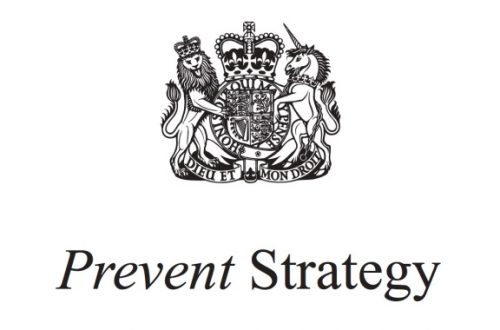In so far as he is a commenter on the Holocaust and Jewish identity, I have little respect for Norman Finkelstein, whom I consider a poor excuse for an academic. Due to his conspiratorial views on Jewish lobby groups and Western Holocaust memorial, he has been feted by many Palestine Solidarity groups, including the Palestine Return Centre and Leeds PSC. I have seen Finkelstein speak at Leeds PSC myself, and I was left both unimpressed and confused by his speech comparing Mahatma Gandhi with Hezbollah.
However, it appears Finkelstein may have grown weary of the BDS campaign that celebrates him.
Harry’s Place will be serialising Norman Finkelstein’s recent outburst attacking the BDS movement. Here is my transcript of Norman Finkelstein’s interview on international law and the two-state solution.
Frank Barat: Another one of your books is about solving the Israeli-Palestine conflict, so how do you do it?
Norman Finkelstein: Basically to put it in a nutshell, if you’re serious about politics, and you’re serious about trying to build a mass movement, you can’t go beyond what the public is ready to accept. The public is ready to accept in my opinion, what international law says. So if you were to put forth a very simple slogan in which you were asked “how do you want to solve it?”, you would say “easy, the law is unambiguous, it’s uncomplicated, there is a near unanimous consensus on what the law” says, and that’s what I want to do. But the law is clear. The settlements are illegal, that’s correct. East Jerusalem is occupied Palestinian territory, that’s correct, the West Bank and Gaza are occupied Palestinian territory, that’s correct, but it’s also correct that Israel is a state. That’s also the law. If you want to use the law as a weapon, to influence public opinion, you can’t be selective with the law. You can’t say, I have the right to walk at the green, but I’m kind of agnostic at the red. No. If you have the right to walk at the green, it’s because you have an obligation to stop at the red. The law is a package deal. So if you want to use the law, the law also says “Israel is a state”.
And the problem with the Solidarity Movement is, it’s a kind of mirror image of the so-called Palestinian Authority. It always talks about international law and international legitimacy, their goals are correct, the problem is their means will never work, because the Palestinians’ main asset is the Palestinian people, the 4 million people of Palestine, and if you mobilise them, galvanise them, I don’t think Israel has a prayer, can’t win. But the Palestinian Authority will never mobilise them because they’re afraid, if you mobilise them, the authority will meet the same fate as Mubarak and all the others, because they’re a gang of corrupt, wretched collaborators, so their goal is correct but their means will never achieve their goal, because all they want to do is bargain behind closed doors with the Israelis.
Israelis will never give them anything, Frederick Douglas, the American abolitionist, “power never concedes without a demand”, it never has it never will, unless you have the force to extract it from anything, they’ll never organise it, they will never give you anything. And the main thing, the main weapon is the people. And they’ll never organise it.
According to Finkelstein, Palestine Solidarity is wrong to use international law as a weapon, as the law also recognises Israel. Finkelstein is a well-known two-stater, and so opposes the one-state movement. But also, Finkelstein criticises the PA for negotiating with Israel. According to Finkelstein, the PA is “a gang of corrupt, wretched collaborators”, and “all they want to do is bargain behind closed doors with the Israelis”.
I suppose Finkelstein believes that two-states should be imposed on Israel and Palestine, by the international community, rather than letting Israel and the PA discuss political arrangements between each other.
In Finkelstein’s view, the only way for the PA to really achieve its goals, is to mobilise the Palestinian people against Israel. Yet later in the interview, he laughs at the fact that the ISM could only muster a protest of 500 people in Gaza against Israel, when it promised thousands. So Finkelstein appears to see the idea of mobilising 4 million Palestinians to destroy Israel, as unrealistic.
Finkelstein seems to oscillate between Zionism and antizionism. Throughout the interview, it is often unclear whether he is talking tactics or principles, when discussing Israel’s right to exist under international law.
How do you see Finkelstein?


